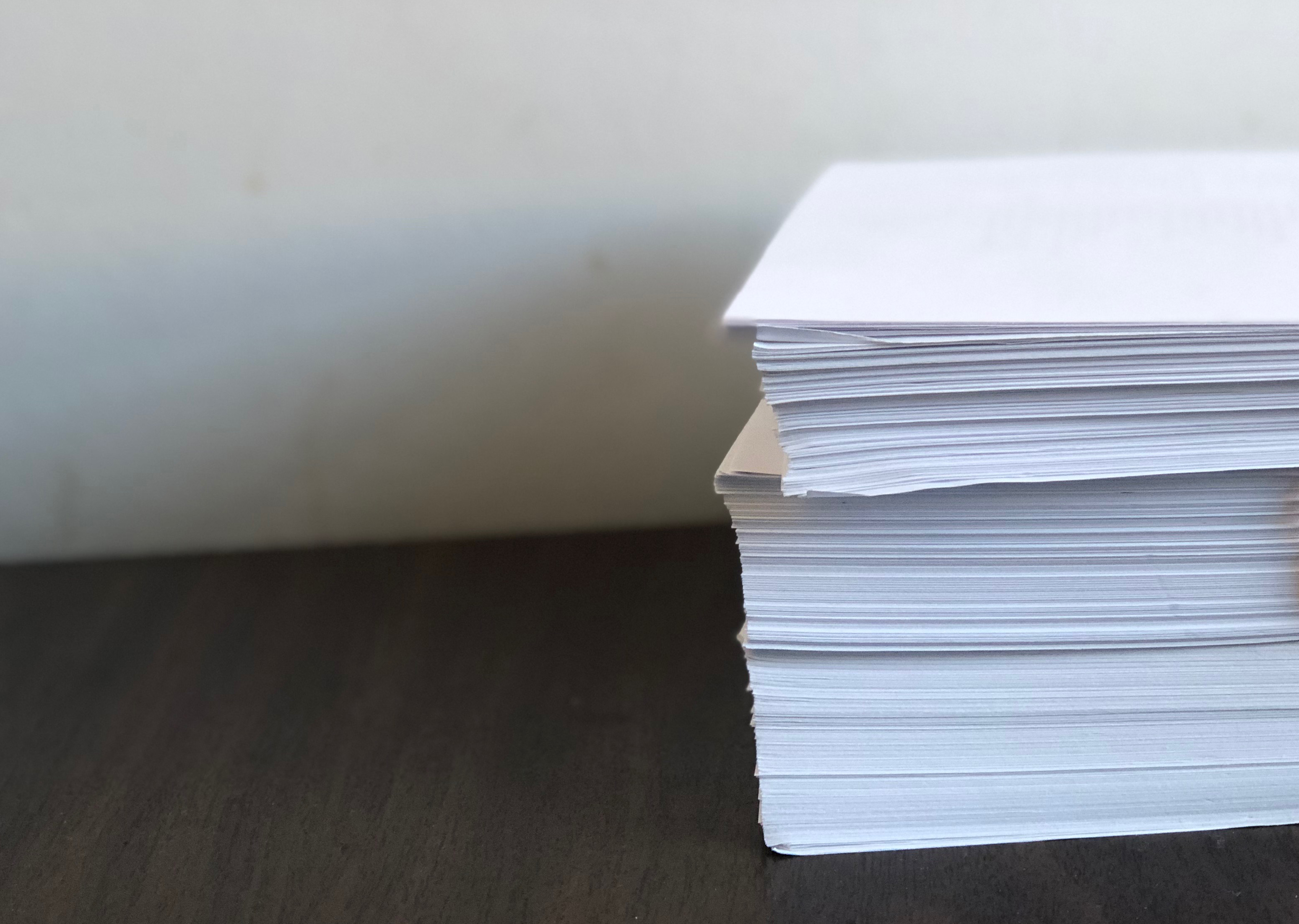by David Joseph
When you’ve been out of college for longer than you’d been in college, apply to colleges for an MFA. To your in-laws, MFA stands for Might Fly Away. To your Lyft driver, it stands for Massages: Fucking Awesome.
Politely clarify, you’ll be studying creative writing.
“Yeah, man,” your Lyft driver says. He has half a mustache—the bottom half. “I do hypnotic muscle therapy,” he says. “It’s all about storytelling.”
Ignore the fact that hypnotic muscle therapy and literary writing do not directly correlate. Your Lyft driver is twice your age and has a Master’s degree in massage therapy and you are only just arriving in a new city to begin study. Trust his assertion that you’ll muscle your way through a novel by hypnosis. Feel the thrust of the car as it accelerates onto the freeway. Beg him, faster, faster. Make him fly so fast his mustache falls into his lap. Feel that? Hold that momentum within you. Never let it go.
+
Your new mentor’s name is Professor Wordsworth or Doctor Bookerman or Chief Scrawling Pages, but he tells you to call him Oswald. Oswald has published forty-seven books, which have subsequently been translated into eighty-three languages. The titles wall the office, where he offers you a seat on a cushy reading chair opposite his desk. Inform him you prefer to stand.
“How are you adjusting?” he asks.
Tell him the joke about the penguin wearing a tuxedo. Make him laugh a cavernous hole in his beard, so he won’t forget you. Make him laugh so hard you can see the coffee-colored rivers of cigarette stains across the backs of his top teeth. Quick, while he’s laughing, learn the eighty-three languages. Read every one of his translated works. Tell him, after everything, the original is your favorite.
“And what are you working on?” Oswald asks.
You’ll never tell. Instead, ask whether his most recent has been translated into Balinese yet, even though you know the answer.
+
Your classmates are a year or two younger than you and have the bodies of antelope. They have the laughs of photo-frozen supermodels. They are physically fit and emotionally ruined. Their trauma, of course, informs the genius of their work.
In your first workshop, swallow your envy. Make a glowing comment that ends with a but. Tear the corners from your peers’ manuscript pages and place the bleached pulp on your tongue. Swallow that, too. Despite their hardships, your classmates are happy to be here. Each of them is the smartest person you’ve ever met. Make sure to be smarter. Make yourself the happiest to be here and then go looking for trauma.
+
Leave your wife back home. Your in-laws will thank you while your wife misses you deeply. Over the phone, report all the good work you’re getting done.
“How are you adjusting?” she asks.
Tell her how lovely everyone is. Promise you’ll send your next draft, as soon as it’s done. Assure her you miss her, too. Call her baby.
“Baby,” she says. Vow to make a child with her as soon as this is all over. “One creation at a time,” she says and laughs.
When you hang up, sit back at your desk. Use your wife’s first name as the name of your newest protagonist and begin to forget where you learned it.
+
Learn Balinese. Translate your mentor’s entire oeuvre by hand. Don’t tell a soul. This is only practice. In conference, in response to Oswald’s comments, whisper lines of his work in obscure local dialects.
“Beautiful,” he says of your fiction and your indecipherable responses. Write stories in which animals dress up as if they’re humans, funny stories that make Oswald’s mouth open like a file drawer. Pull the reading chair closer, closer. Sit. Begin to laugh along. Unhinge your jaw serpent-wide. Lean across Oswald’s desk—closer, closer—a downhill lean so your lips nearly touch his smoke-soiled teeth. There. Go on like that, hooting into each other’s mouths, for as long as you can stand it.
+
Grow the other half of your Lyft driver’s mustache. The Sharpie streak of it should live crowded up against your nostrils, the shadow of your upturned nose.
+
A second-year named Helen calls you for a drink. She is an admirer of your recent workshop story. Repeat, it was far from your best work. Helen praises your language, your wit, your voice. Say to her, “Wait till you hear me sing.” She laughs so big you could dive down her throat. Instead, fill her with drink. Each time she speaks a kindness about your prose, humbly say No and order her another salty dog. Helen slurps down whatever you give her. Soon she is twice her original size—a sloshing, giggling waterbed of a body. She compliments your mustache and tips herself forward on her stool to taste it. Catch her with your mouth. Clamp your jaw on her soft lips until you taste salty copper. Call a cab and pour Helen into it.
+
Your wife misses you. She tells you so tearfully through a telephone wire.
“I’m coming to see you,” she says. “I have to.”
Use these words exactly: “I don’t need a distraction right now.” Focus.
She’s screaming. “Is that what I am?” You hardly recognize her voice. It makes you hungry. Her fury is the stuff of stories.
Say: “Space.” Say: “Time.” Hear her voice crescendo. Hear it gurgle through her bitter tears. Drink it in. On a notepad, write everything down. In the end, apologize. Agree to go visit. “Soon.”
+
Oswald invites you to his home to conference. His wife is at the grocery store or the hairdresser. “Your new novel is good,” he tells you in his study, “but it’s missing something.”
You know what it’s missing. Tell him. “It needs more—”
Let him interrupt. “Yes,” he says. “More.” Spread your manuscript on its spine across Oswald’s desk. Climb atop the wooden slab of it, kneel upon your pages. Make Oswald rise to meet you, howler-mouthed. Oswald is an angry lover. And doesn’t that feel wonderful? The physicality? The filthy locomotion of it?
+
Helen is missing from workshop. There are rumors she’s killed herself and her final work was perfect. Your classmates applaud her heroism, how gloriously sad it all is. Sit in Helen’s seat, by the front, beside the instructor. Beside Oswald.
One of your classmate’s stories is up for discussion. It is a masterpiece about real people, and about art, and death, and death as art as dying. Unread the last page. Erase it from your mind. Mount the conference table. Tear the last forgotten page from the manuscript and shred it. Strip by ragged strip, have Oswald feed it to you. It is magic, this disappearing act. Your peers applaud your audacity, your imagination. They are cheering you, gaping mouths like hollowed fruits.
+
Pack your suitcase full of your handwritten translations. Yes, all of them. Lug them to the station before dawn. Before even the station manager arrives, climb down onto the tracks. Walk a ways. A runway’s length toward your hometown. Here. Unload the inches-thick translations bearing Oswald’s name, every last one. Balance their leather covers across the rails. There’s the sun.
Back on the platform, stand beside a bench with your empty suitcase at your feet. Finger the crease of your train ticket in your pocket. Create the appearance that you truly intend to go home to your wife for the weekend. Watch the Saturday morning passengers arrive: there’s the suited man whose work is to think about money always; there’s the unchanged lover who slinked from a strange apartment before the stranger’s waking; there’s a young person who looks just like every one of your classmates.
The vacant train arrives. The passengers fill it. Not you. You’ll tell your wife you were in the restroom. It was only a moment. The train doors shut. It lumbers, picks up speed, shrinks away from you. First you hear it: metal shrieking. Your wife will be so grateful you missed your train. Watch the sparks erupt in the distance, witness the train tip off its rails. Glass shatters. Whiff the scent of the burn. On your palms, scrawl the words you discern in screams. Marvel at the power of language.
+
Oswald disappears. You are told that he has resigned from the University. There are rumors that he killed himself and didn’t leave a note. It was genius. At your next workshop the room is mostly empty. Someone asks if anyone heard about the accident. Isn’t it horrible? She says two of your classmates were on board. They were in love, and what a storybook ending, if that’s the genre you’re going for.
Ask: “Should we go on with class?” Say: “Don’t you think that’s what they’d want?”
Someone begins to cry. Insist. Go on. Workshop.
You are oh so happy to be here.
+
A woman with the name of one of your old characters calls. “When can I read what you’re working on?” she asks.
Tell her you’re nearly finished. Soon.
She misses you, she’s saying. “I feel like I’m going crazy here on my own.”
No. She’s not crazy. Tell her. Ask what makes her feel that way. Call her honey.
“I’m worried everything will be different,” she says. “I’m afraid I won’t recognize you.”
“Who’s this?” you say.
“It’s me,” she answers. “Don’t you remember?” Tell her to start from the beginning and, at first, listen. Stand in awe of her imagination, the vivid fiction of it. Hum your false recollection. Keep her talking, talking, and then move the phone from your ear. Yawn your jaw wide and ease the receiver between your lips. Feel her quavering voice rattle your teeth. Breathe her desperate remembrance like the smoke you’ve begun to swirl in your lungs to feel alive. Inhale. Ingest every roiling word like nicotine.
+
You find Oswald’s favorite suit laid across your bedspread. Smell the cuff. It’s him. Oswald walks out of your walk-in closet in the nude. His ribcage is a plowed field in miniature. He grabs hold of your wrist with three spindly fingers.
“I’ve been framed,” he says. He used to seem so sturdy.
Let him explain. They found his name on shreds of paper in the wreckage, he tells you. “I didn’t do it,” he promises.
Tell him you believe him. Offer him your mouth. He takes it, every time. By now, you have a full beard. Allow Oswald to grab hold of it. At first, let him meet your mouth with his. Then, hook your arms below his depressed buttocks and lift. Topple Oswald headlong into your ravening maw. Swallow him whole. He goes down easy. His suit on you is a perfect fit.
+
Welcome to workshop. Introduce yourself. You’re the instructor, after all. Your students are broad-eyed and shut-lipped. Their bodies are those of greyhounds. Ask how they’re adjusting, so far. Good. Good.
The young writers ask from where your inspiration springs. You don’t believe in that. Tell them. This is work. You get up everyday and you make things happen.
“Show us,” they beg of you. Oblige. Blink and make the lights flicker. Clap to make the roof fall. Crater your mouth and flood the room with your divine sputum. Drench them in it. Class dismissed.
+
Back in your University office, line up the collected inkwells of your students and disappeared peers and professors across your desk. Tower their compiled manuscripts on the floor of your study. Open your mouth. One by one, consume the life’s work of every writer you’ve ever known. Don’t stop there. Devour your own works in progress. Engulf the desk you wrote them on—the office door. Grind the world to splinters between your hungering teeth until your gums bleed and then go on gulping and gnawing—like a bullet train, chug and chug and chew chew chew chew chew.
David Joseph’s creative work has appeared in Hobart, Cheap Pop, Entropy, W.W. Norton’s Hint Fiction anthology, and elsewhere. He earned his BA in Creative Writing from Susquehanna University and is currently pursuing an MFA in Fiction at Arizona State University, where he is relentlessly supported, challenged, and fulfilled. This fiction could never have been written without the love and generosity he’s received from ASU classmates, teachers, students, and friends. Connect with David on Twitter at @dfhjoseph.



